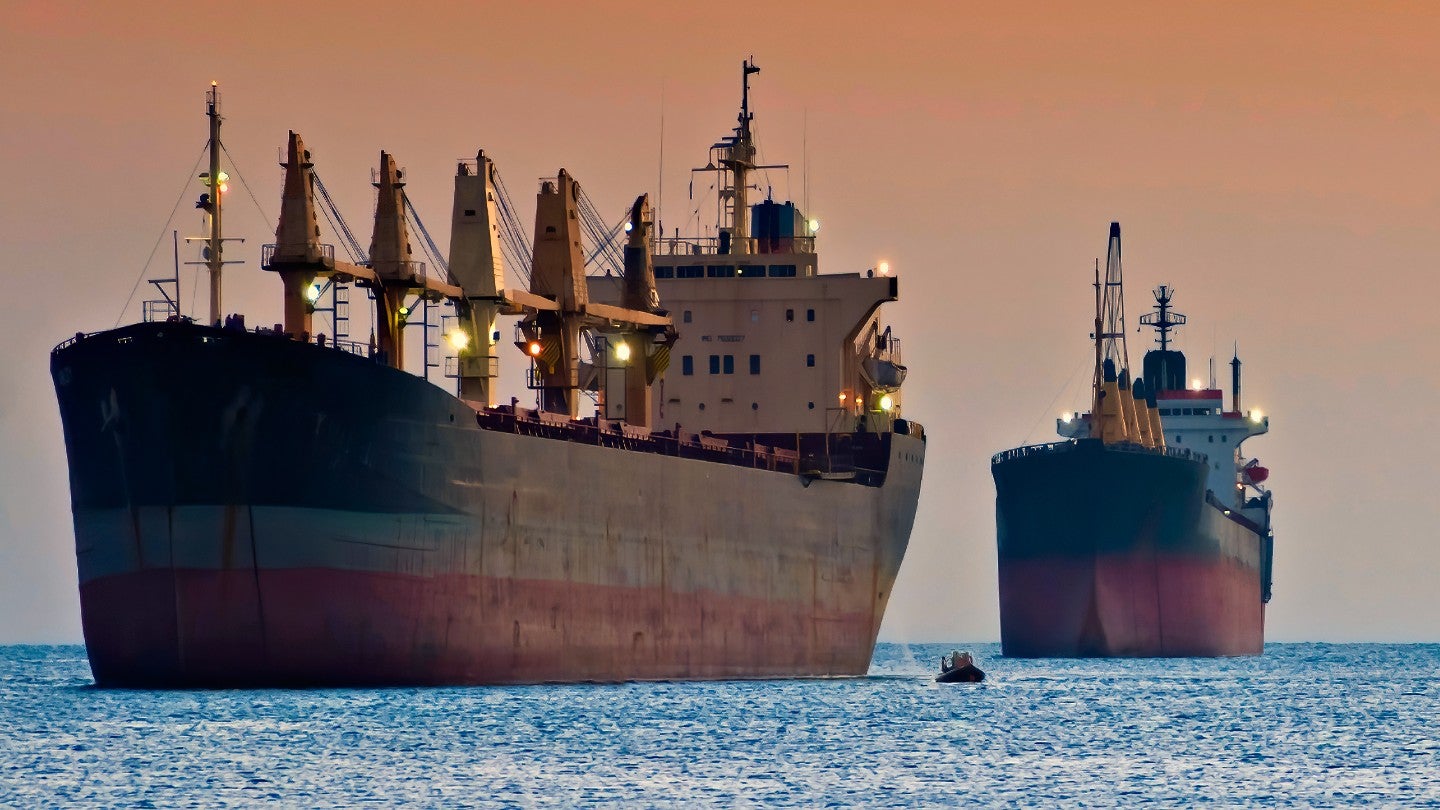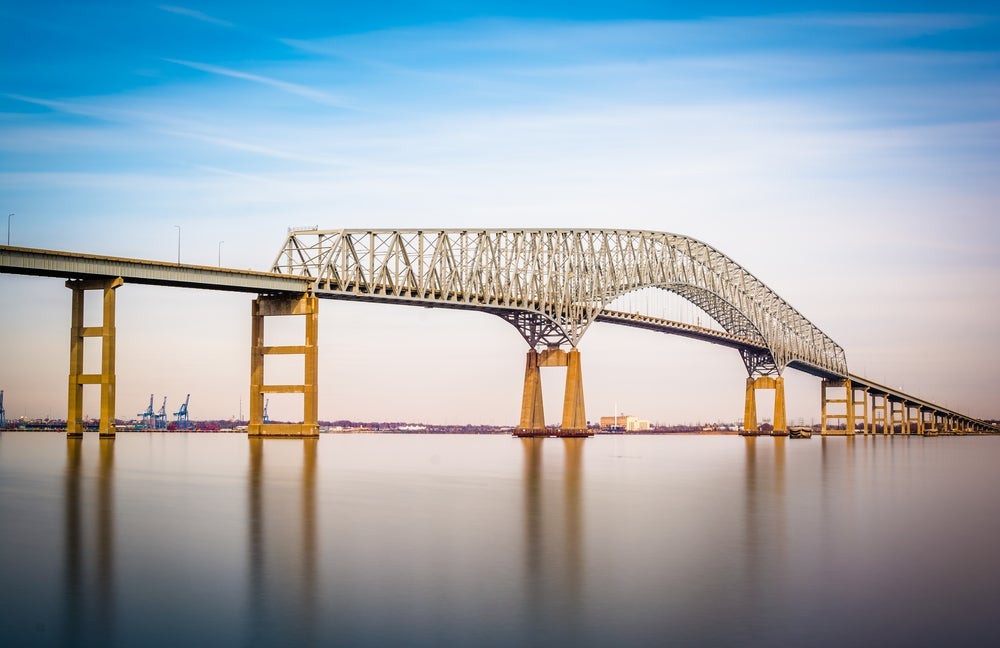
With the US military yesterday (18 January) firing its fourth wave of missile strikes on Yemen in the space of a week, alarms have been raised by experts and companies across numerous industries over the supply chain disruption caused by Houthi attacks on Red Sea shipping.
“For us this will mean longer transit times and probably disruptions of the supply chain for a few months at least, hopefully shorter, but it could also be longer because it’s so unpredictable how this situation is actually developing,” Maersk CEO Vincent Clerc told attendees at the World Economic Forum’s annual summit in Davos.
Maersk, Hapag-Lloyd and COSCO are among the large shipping firms to have suspended Red Sea routes until further notice.
The Houthis, a militant group which controls vast swathes of Yemen, have indiscriminately targeted vessels in more than 30 attacks since 19 November.
Instead of crossing the Red Sea and Bab al-Mandab Strait, ships have been forced to circumnavigate the Cape of Good Hope and African continent.
This adds an “additional 14 or more days and approximately $1m in operating costs”, Corey Ranslem, CEO at maritime intelligence firm Dryad Global, told Just Auto.
How well do you really know your competitors?
Access the most comprehensive Company Profiles on the market, powered by GlobalData. Save hours of research. Gain competitive edge.

Thank you!
Your download email will arrive shortly
Not ready to buy yet? Download a free sample
We are confident about the unique quality of our Company Profiles. However, we want you to make the most beneficial decision for your business, so we offer a free sample that you can download by submitting the below form
By GlobalDataCargo data terminal Freightos expects the situation will deteriorate before it improves, potentially after the skyrocketing demand for exports to Asia ahead of Lunar New Year (10 February).
Are oil and gas prices rising?
Such cost and delay has piled pressure on many industries.
Approximately 10% of the world’s oil and 8% of natural gas passes through the Bab al-Mandab Strait each year, but Houthi attacks have prompted the likes of Shell, BP and Equinor to halt shipments.
US crude oil prices traded below $71 per barrel on Tuesday (16 January) while US natural gas prices sank more than 8%, Investor’s Business Daily reported.
This, however, has not “significantly affected oil and natural gas prices”, according to Rami Khrais, oil and gas analyst at GlobalData.
“No deliberate attacks against oil and LNG carriers passing through the region have been reported in the past two weeks,” Khrais told Just Auto. “Additionally, factors including a strong dollar, rising European gas inventories, and China’s slow demand for oil act as deterrents to substantial increases in energy prices.”

Qatar Energy initially paused its LNG shipments through the Red Sea, before reversing the decision shortly after. Current operations are ongoing through the waterway transporting LNG to Europe.
“The current semi-stability in price might change if this situation continues for a while,” Khrais added. “Rising risk insurance for these vessels is becoming reflected in the final price of oil and gas products.”
How has the Red Sea crisis affected inflation?
While there are concerns among some bankers that the Middle Eastern crisis will drive inflation that delays or reverses interest rate cuts, Christopher Granville, head of geopolitical research at TS Lombard, believes otherwise.
“Inflation and interest rate pressures from the Houthi attacks will likely blow over like a squall – even if military action by both the Houthis and the US drags on for some time,” Granville said.
Both Russia’s invasion of Ukraine the Middle East crisis have driven inflation in energy and transport.
But Russia-Ukraine compounded the post-Covid inflation surge caused by global supply bottlenecks and excess consumer savings.
Companies were able to pass on the higher costs to end customers, driving up inflation, whereas now that demand is weakening.
“Companies will be forced to absorb more of any such sudden cost increases like those resulting from the Houthi conflict by accepting lower profit margins”, Granville told Just Auto. “Reduced profits will lead to weaker labour markets – adding up to an overall deflationary effect.”
Amid the remarks from Maersk’s CEO that the Red Sea crisis could continue for several more months, adaptability will affect regional and global inflation rates.
“As supply chain and inventory management adapts to the longer shipping times caused by containers having to take the alternative route around the Cape of Good Hope, there will be fewer production issues dominating headlines”, said Granville.
Tesla and Volvo pause production
The automotive industry has been beset with such issues.
Tesla has announced a pause in production at its factory near Berlin for two weeks (29 January to 11 February) due to supply chain delays and bottlenecks, while Volvo has also suspended production at its European manufacturing plants.
Justin Cox, automotive analyst at GlobalData, was quick to point out that the “European impact of the Red Sea crisis appears to be mostly limited to a few Original Equipment Manufacturers (OEMs)”.
“VW Group and Stellantis reportedly claim that expedited freight or ship re-routing will be sufficient to avoid vehicle assembly disruption,” Cox added. “At this stage, we expect the losses to be recovered, although we are monitoring the situation should events escalate.”
As politicians seek diplomatic solutions and businesses adjust supply lines, the Red Sea crisis shows little sign of abating.
The Houthis have vowed to prolong their ship attacks indefinitely, while President Biden yesterday (18 January) promised the US would continue missile strikes on Yemen.
Even if the damage inflicted on transport, energy, finance, and auto companies is not long-lasting, the chinks exposed in the armour of global shipping routes are, Granville concludes.
“This episode is a sobering reminder that ever-worsening geopolitical tensions spell the end of stably low inflation and interest rates that businesses all around the world got used to in the decades since the taming of the ‘Great Inflation’ in the 1980s.”




